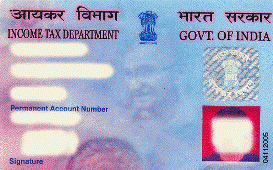 | « Back to article | Print this article |
 Statutory provisions mandating quoting of Permanent Account Number of deductees in tax deduction at source statements exist since 2001.
Statutory provisions mandating quoting of Permanent Account Number of deductees in tax deduction at source statements exist since 2001.
The department feels that the non-quoting of PANs by deductees is creating problems in the processing of returns of income and in granting credit for tax deducted at source, leading to delays in issue of refunds.
In order to strengthen the PAN mechanism Section 206AA was introduced by Finance Act (No.2) 2009. This section provides that any person whose receipts are subject to deduction of tax at source shall be required to mandatorily quote his PAN to the person responsible for deducting TDS.
In case the deductee fails to intimate the PAN to the deductor, then the deductor shall be required to deduct TDS at following rates:
1. Rates prescribed in the Income-tax Act or in the Finance Act, OR
2. At the rate of 20 per cent
Whichever is higher.
In other words, if the person fails to intimate the PAN to the deductor, TDS will be at a minimum rate of 20 per cent.
These provisions will come into force from April 1, 2010.
The above provisions will be applicable to all assesses. The intent of the legislature is clear from the Memorandum to the Finance Bill, which specifically provides that these provisions will also apply to the NON-RESIDENTS.
The aforesaid legal position has again been reiterated by CBDT through its Press Note dated 20th January, 2010 which states: "A new provision relating to tax deduction at source under the Income Tax Act 1961 will become applicable with effect from 1st April, 2010.
Tax at higher of the prescribed rate or 20 per cent will be deducted on all transactions liable to TDS, where the Permanent Account Number of the deductee is not available.
The law will also apply to all non-residents in respect of payments/remittances liable to TDS.
As per the new provisions, certificate for deduction at lower rate or no deduction shall not be given by the assessing officer under section 197, or declaration by deductee under section 197A for non-deduction of TDS on payments shall not be valid, unless the application bears PAN of the applicant/deductee".
The issue is particularly important to non-residents because in most of the cases their income is taxable @10 per cent while in the absence of PAN, tax will be deducted @20 per cent.
The problem may be looked at from another angle. Taxability of non-residents in India is subject to the provisions contained in the Double Taxation Avoidance Agreement entered into by government of India with other countries.
After introduction of Section 206AA, a question arises whether the tax required to be withheld will be as per the rate mentioned in the DTAA or as per Section 206AA?
In this respect, the decision of the Hon'ble Bombay High Court in the case of CIT vs Siemens Aktiongesellschaft, [310 ITR 320] is worth consideration.
In the said case, it was held that by an unilateral amendment in the domestic law, it is not possible to tax income which otherwise was not subject to tax under the tax treaty.
Since Section 206AA has been inserted by a unilateral amendment, it cannot override the rates prescribed in the tax treaty.
Nevertheless, there is a possibility that after section 206AA comes into force, i.e. w.e.f. 01.04.2010, the income of non-residents could be subjected to higher rate of TDS @20 per cent if PAN is not available.
In such cases, in order to claim refund of excess TDS deposited, the non-residents will have to file their return of income in India.
This will be a cumbersome procedure.
The procedure for obtaining PAN is simple, inexpensive and quick. Non-residents can apply through the local embassy / consulate of India.
Applications can also be filed, paid for or tracked online through the Internet.
Non-residents are advised to obtain Permanent Account Number (PAN) before receiving any income from India.
Author is a Sr. Partner in S S Kothari Mehta & Co.